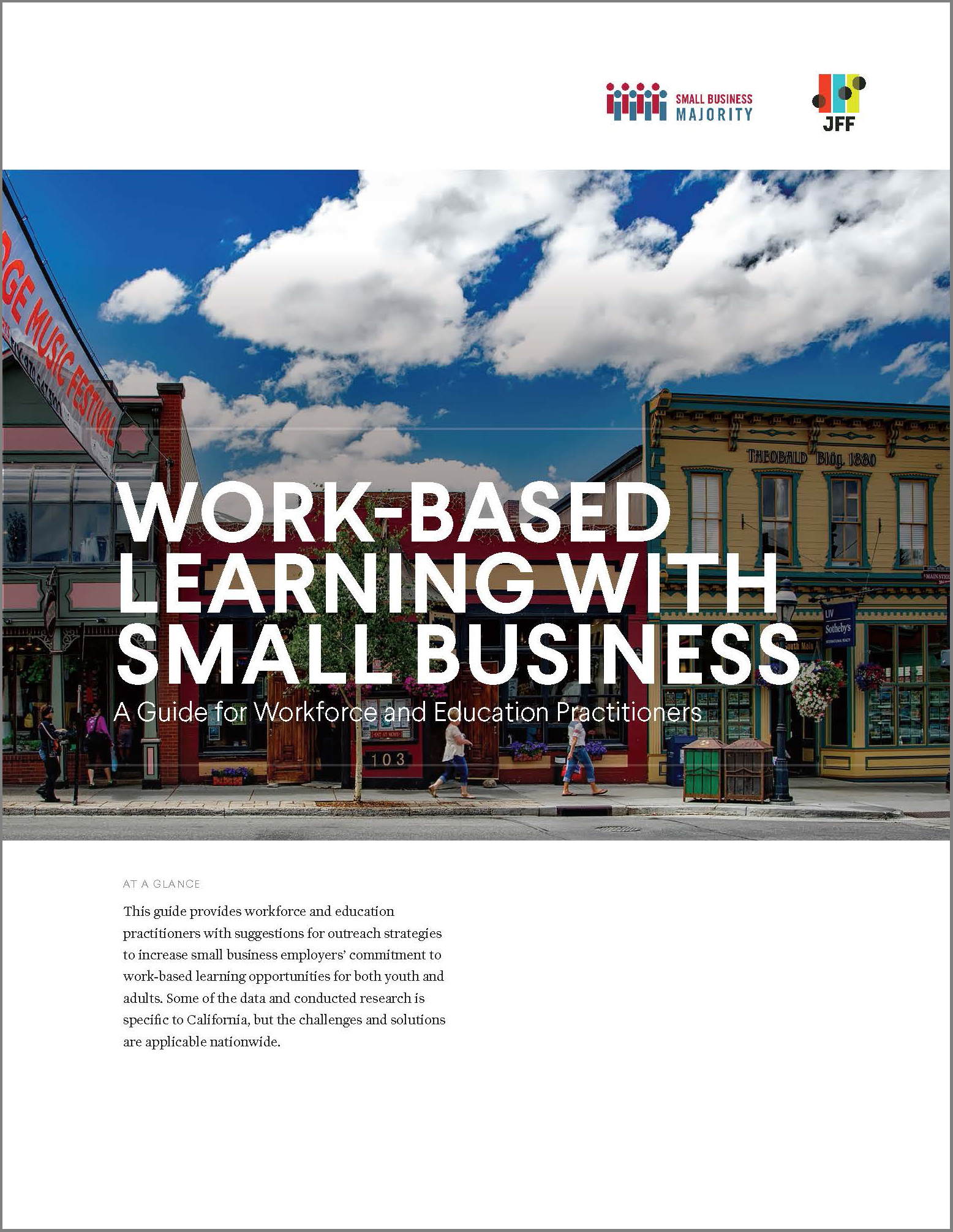As of 2015, small businesses employed nearly half of the nation’s private-sector workforce. Yet, workforce development strategies often focus on large businesses, missing an opportunity to influence almost 50 percent of American workers.
If small businesses were to partner with colleges, schools, community-based organizations, and workforce training programs, not only would the talent pool increase, but business owners could also have a hand in shaping the skills that the upcoming workforce is learning.
Work-based learning models offer employers an opportunity to develop a skilled local workforce, providing them with many benefits, including:
- Short-term productivity increases
- A boost in performance through a diverse workforce
- An enhanced appeal to investors
- Stronger connections to the local community
To help build these partnerships in communities across America, we’ve developed a guide geared toward small businesses interested in offering work-based learning, as well as a guide and a deck for workforce and education practitioners seeking to engage in work-based learning with small businesses.
For a broader look at developing work-based learning programs in today’s work environment of automation and contract employees, see our report Developing Future Talent: How We Can Prepare for the Future of Work and Business.





